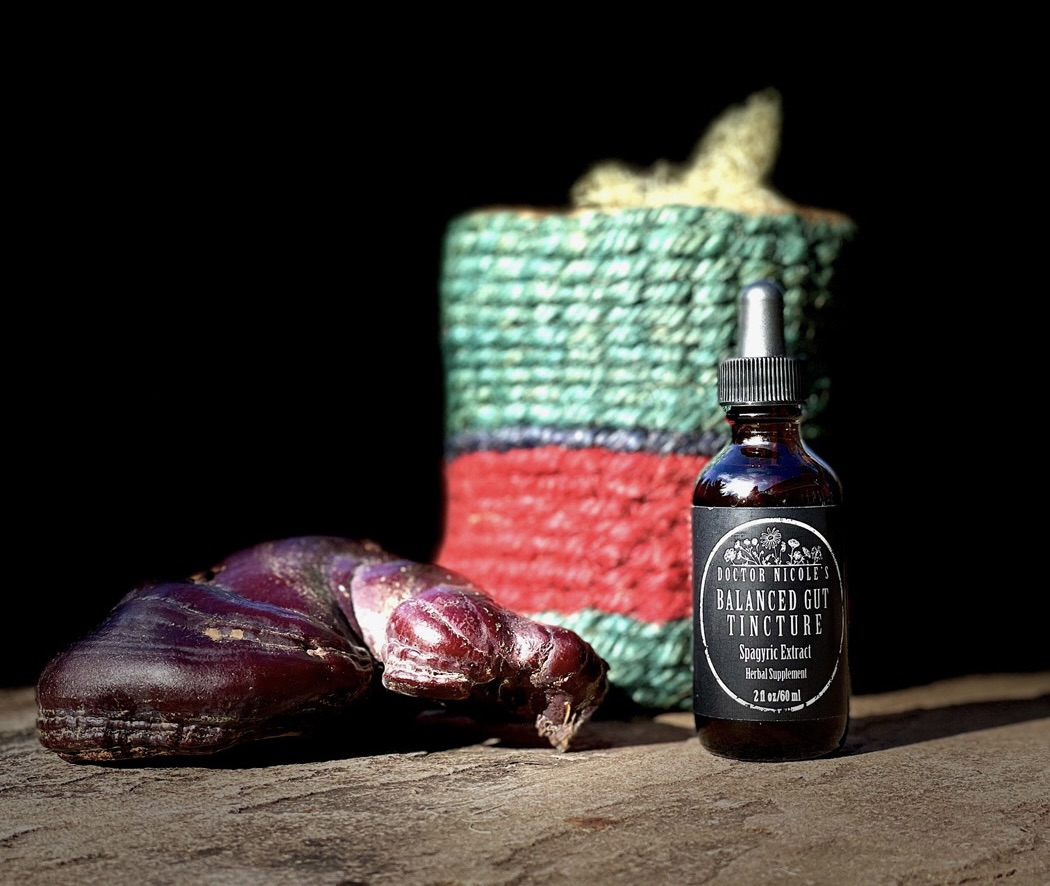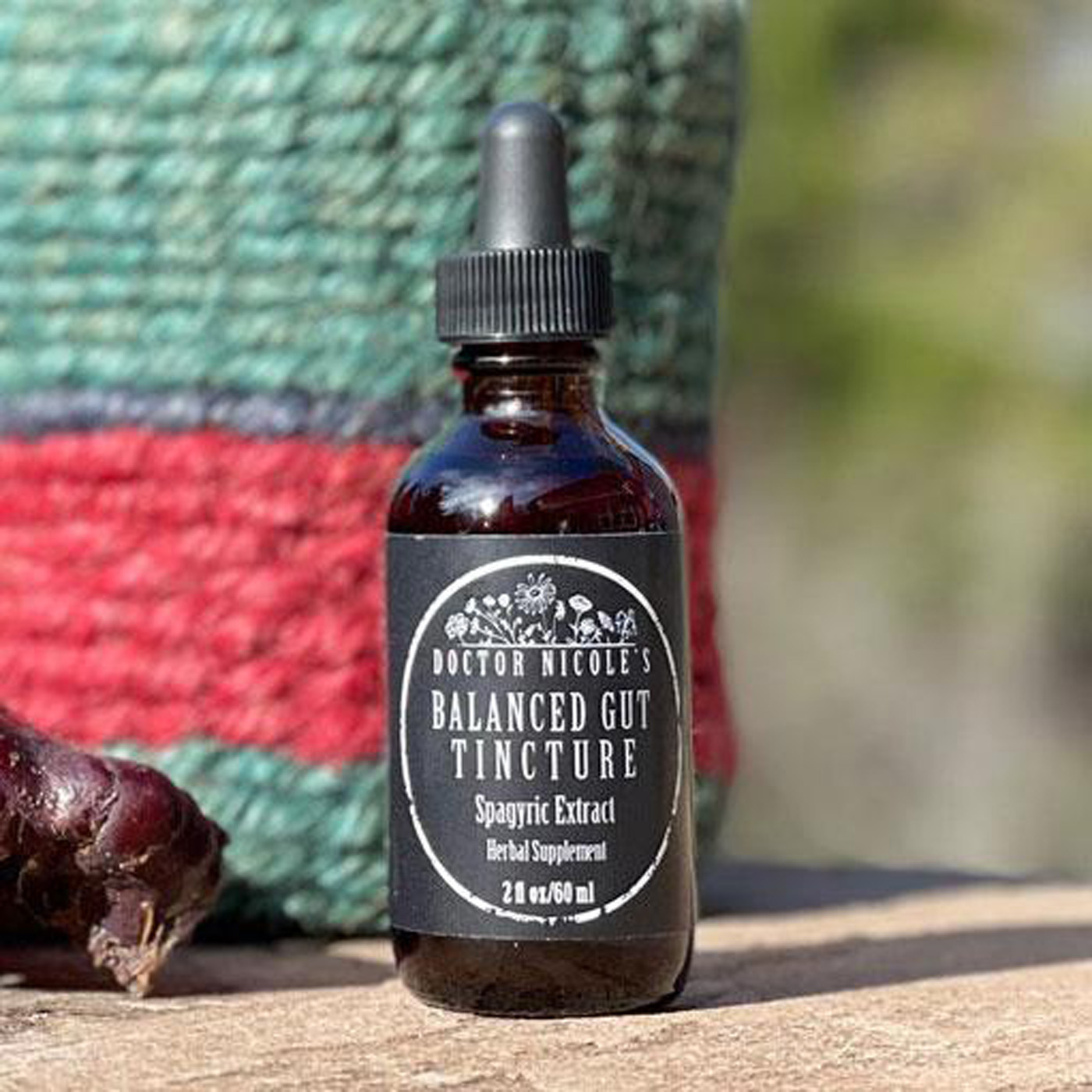Are you struggling with post recovery syndrome?
If you are struggling with post recovery syndrome after a viral respiratory infection, a fascinating study may shed light on the root cause: disruption of the gut microbiota. Interestingly, the researchers found that this change directly impacted lung inflammation — long after the initial infection cleared without any detectable viral presence.
What’s more, the animal model was more susceptible to an antimicrobial-resistant strain of Klebsiella pneumoniae, which is known to cause lung infections. But that’s not all. The altered gut microbiota was also found to significantly impair cognitive function. Let’s have a closer look at the findings of the study, along with how to mitigate the negative impacts on the gut and brain.

Post-Viral Infection and Changes to the Microbiota
If you are experiencing brain fog or other lingering symptoms after a viral respiratory infection, research published in the journal Research Square may give you pause for thought.1 The study involved 79 patients who were experiencing long-haul symptoms and 59 healthy controls. Two months after the initial infection, fecal samples were collected and analyzed. All samples tested negative for the virus. Importantly, the results showed that there were no significant differences in the diversity of the gut microbiota between the healthy controls and the long-haul patients.
What they did find were changes in microbiota-derived metabolites — namely, lower levels of acetate and butyrate in those experiencing symptoms long after the initial viral illness. Additionally, there were higher levels of multi drug-resistant Enterobacteriaceae and Klebsiella strains present, and lower levels of Escherichia, compared to the healthy individuals. Surprisingly, blood levels of pro-inflammatory compounds were the same in both groups. However, they did find higher levels of intestinal epithelial damage, leading the researchers to believe the viral infection caused injury in the gut, but isn’t associated with an increased rate of systemic inflammation.
Next, the team transplanted fecal samples of those experiencing post-infection symptoms into germ-free mice. This did not cause any detectable harm in the intestinal tract — but it did trigger increased lung inflammation, even though there was no trace of the virus in either the sample or the lung tissues. It also made the mice more susceptible to lung infections with the Klebsiella pneumoniae bacterium.
Furthermore, the scientists noted significant changes in their brains, including lower levels of neuroprotective compounds, such as brain-derived neurotrophic factor (BDNF) and postsynaptic density protein (PSD-95). There was also an increase of tumor necrosis factor-alpha (TNF-alpha). Cognitive decline was observed in the mice as well.2
To test their findings, the researchers also infected an independent mouse model with the virus. They too exhibited cognitive impairment. But for mice who were pre-treated with the probiotic Bifidobacterium longum and then exposed to the virus, their cognitive function did not decline.
These results indicate that not only does the virus have an impact on gut microbiome metabolites, but it also predicts the severity of disease and if an individual will experience long-haul symptoms — including lung inflammation, brain fog, and cognitive dysfunction. The study also gives hope to those with post recovery syndrome, as it demonstrated that probiotics are protective and may also help to mitigate the symptoms of those struggling with long-haul symptoms.

Tending to Gut Health
In light of these findings, it brings into focus something that I have long emphasized: actively healing and supporting the microbiome and gut as a foundation for health. And there are many ways to do this through diet, exercise, red light therapy, and even gratitude.
Herbal remedies also play an important role, not only to encourage a robust microbiome, but also to heal a common condition called intestinal hyperpermeability — otherwise known as leaky gut. To address a compromised gut and microbiome, I developed a powerful blend of several herbal medicines that help to soothe and heal the digestive tract, support beneficial bacteria in the gut, and cool inflammation. This potent Balanced Gut formulation contains reishi, turkey tail, and lion’s mane medicinal mushrooms, along with plantain, slippery elm, and marshmallow.
THIS TINCTURE IS WHY I BELIEVE IN NICOLE!
“I have multiple sclerosis and have suffered from IBS for many years. I have a gluten sensitivity as well. THIS TINCTURE IS FANTASTIC. I’m telling you. I am very sensitive to things. So I only can do 20-30 drops a day, but it’s all I need. My IBS, is GONE! Gone. How does that happen?! I love this product. I can eat gluten now when I really want that pizza and I don’t have bowel issues. It’s insane how much this actually healed my leaky gut and keeps my sensitivity at bay. I will continually purchase this product and tell others about it, because it is THAT good. Thank you, Nicole.” -Alycia
If you are suffering from long-haul syndrome, gut issues, inflammation, brain fog, or another stubborn health condition, tending to the gut should be your first priority. Our Balanced Gut Blend can help! Visit the apothecary today and discover why our tinctures are considered the gold-standard of healing herbal extracts.
Nicole Apelian
Nicole’s Apothecary Products in this Post
References
- Mendes de Almeida, V., Engel, D. F., Ricci, M. F., Cruz, C. S., Lopes, Í. S., Alves, D. A., d’ Auriol, M., Magalhães, J., Machado, E. C., Rocha, V. M., Carvalho, T. G., Lacerda, L. S. B., Pimenta, J. C., Aganetti, M., Zuccoli, G. S., Smith, B. J., Carregari, V. C., da Silva Rosa, E., Galvão, I., Dantas Cassali, G., … Vieira, A. T. (2023). Gut microbiota from patients with COVID-19 cause alterations in mice that resemble post-COVID symptoms. Gut microbes, 15(2), 2249146. https://doi.org/10.1080/19490976.2023.2249146
- “Study links post-COVID symptoms with alterations in gut microbiota”, Dr. Sanchari Sinha Dutta, Ph.D., News Medical Life Sciences, June 23, 2022






